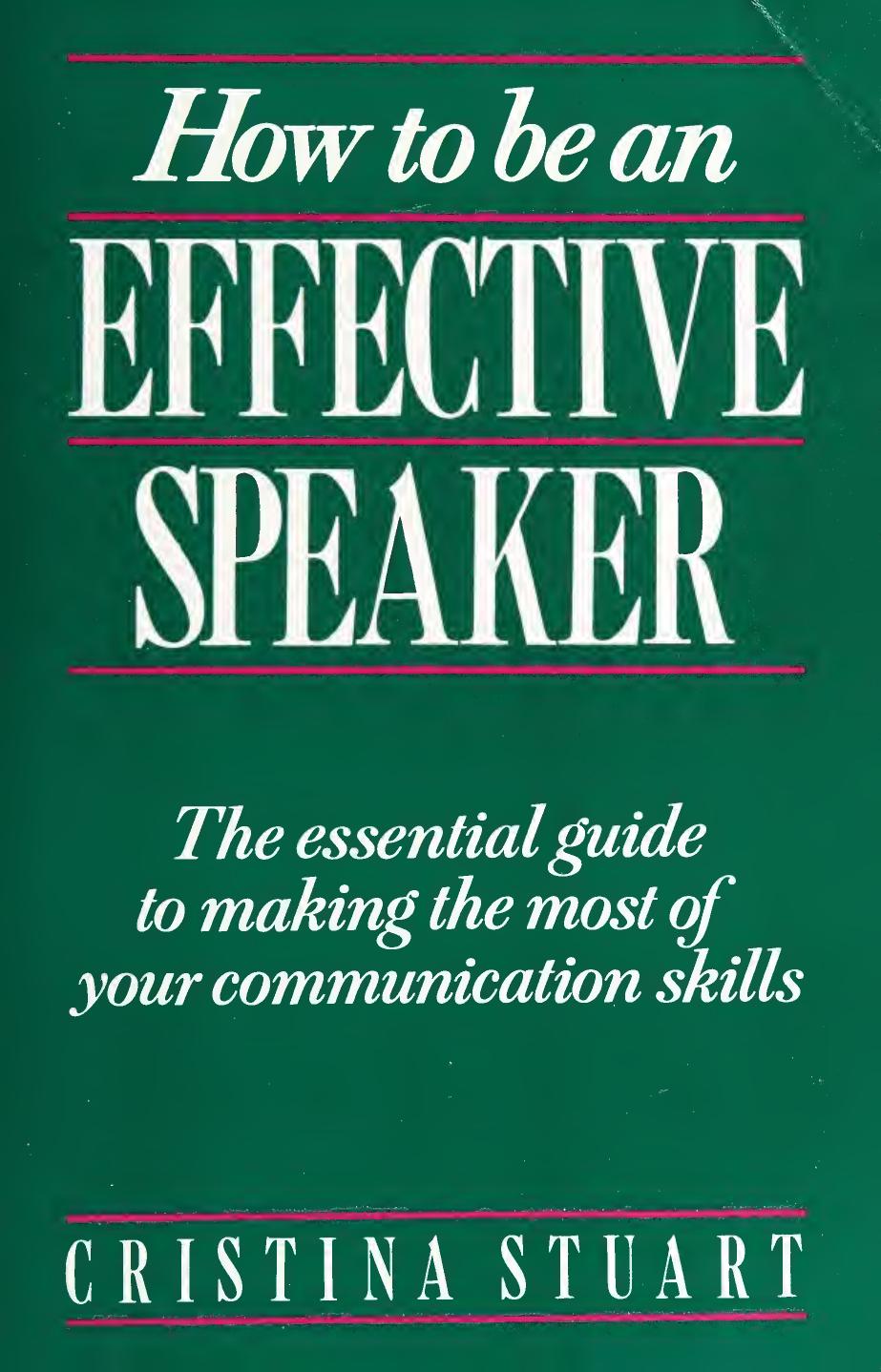How to be an effective speaker by Stuart Cristina

Author:Stuart, Cristina
Language: eng
Format: epub, pdf
Tags: Public speaking
ISBN: 9780844232805
Publisher: Lincolnwood, Ill. : NTC Business Books
Published: 1989-10-19T16:00:00+00:00
Summary — understanding your audience
• Research your audience.
• Watch their body language.
• Use comprehension questions in small groups.
• Control the interruptions.
• Use interest prompts.
Questions and answers
Be sincere; be brief; be seated.
Franklin D. Roosevelt
Whenever you talk, your audience will want to ask questions, therefore it is prudent to anticipate how you’ll handle them.
When to allow questions
In a small group you may decide to allow questions throughout your presentation, as they will occur naturally when they are most relevant and you will be in a good position to control them. It’s always a good idea to encourage questions if you are presenting an instructional talk, as you’ll need to check comprehension —and questions can provide valuable feedback for you.
I have said earlier in this book that I prefer to ask for questions to be kept until the end of my talk so that I can present my material in the order which I have chosen, but when I am running training classes, I often pause for questions so that the monotony of one voice is broken. This helps to maintain a higher level of concentration and allows the listeners occasionally to become active participants; questions also enable me to check that everyone has understood.
There are disadvantages to allowing questions during your presentation:
• They disrupt the flow and structure of your talk.
• The answer may be contained later on in your talk.
• Only one person may be interested, i.e., the questioner.
You may be able to manage a spontaneous question and answer session in a small informal group, but large audiences
need to be controlled more firmly. If you are the sole speaker, let the audience know when you expect questions and even suggest to them that they jot down those which occur to them as you are talking.
\ ou should always schedule your questions before your final summing up so that you can end on a positive note. Don’t forget that your last words to die audience will be retained longest and you don’t want these to be a minor argument which you had with a questioner. When question time is over, if you have been unlucky enough to face any difficult or hostile questions, you should regain control by repeating your main points. Demonstrate to the audience that you are a reasonable person by finishing on a humorous note if this is appropriate.
When you restate your main proposition, include any comments from the audience which support it and ignore adverse questions or remarks. Thus, you show that you are confident and can cope calmly with controversy. The audience doesn’t want to see you embarrassed and they expect you to behave in a professional manner.
If you are introduced by a chairman, be sure to check with him beforehand regarding who will handle die question and answer session. Unless you are part of a panel discussion, my personal preference is for the speaker to control the questions.
Questions to a panel
On a panel it’s advisable to allow questions immediately after each speaker, because if the audience
Download
How to be an effective speaker by Stuart Cristina.pdf
This site does not store any files on its server. We only index and link to content provided by other sites. Please contact the content providers to delete copyright contents if any and email us, we'll remove relevant links or contents immediately.
Daring Greatly by Brene Brown(6514)
You Do You by Sarah Knight(4468)
Ikigai by Héctor García & Francesc Miralles(4274)
The Confidence Code by Katty Kay(4260)
He's Just Not That Into You by Greg Behrendt & Liz Tuccillo(3900)
The Courage to Be Disliked by Ichiro Kishimi & Fumitake Koga(3504)
Toxic Parents by Susan Forward(3292)
Make Your Bed by William H. Mcraven(3180)
Self-Esteem by Matthew McKay & Patrick Fanning(3144)
365 Days of Wonder by R.J. Palacio(2838)
The Gaslight Effect by Dr. Robin Stern(2794)
The Gifts of Imperfection by Brene Brown(2576)
Dare to Lead by Brené Brown(2458)
The Charisma Myth: How Anyone Can Master the Art and Science of Personal Magnetism by Cabane Olivia Fox(2448)
The Modern Alpha Male: Authentic Principles to Become the Man You Were Born to Be: Attract Women, Win Friends, Increase Confidence, Gain Charisma, Master Leadership, and Dominate Life - Dating Advice by Patrick King(2353)
How to Own Your Own Mind by Napoleon Hill(2295)
Parisian Charm School by Jamie Cat Callan(2292)
The Year of the Introvert by Michaela Chung(2288)
How to Make Small Talk by Melissa Wadsworth(2251)
